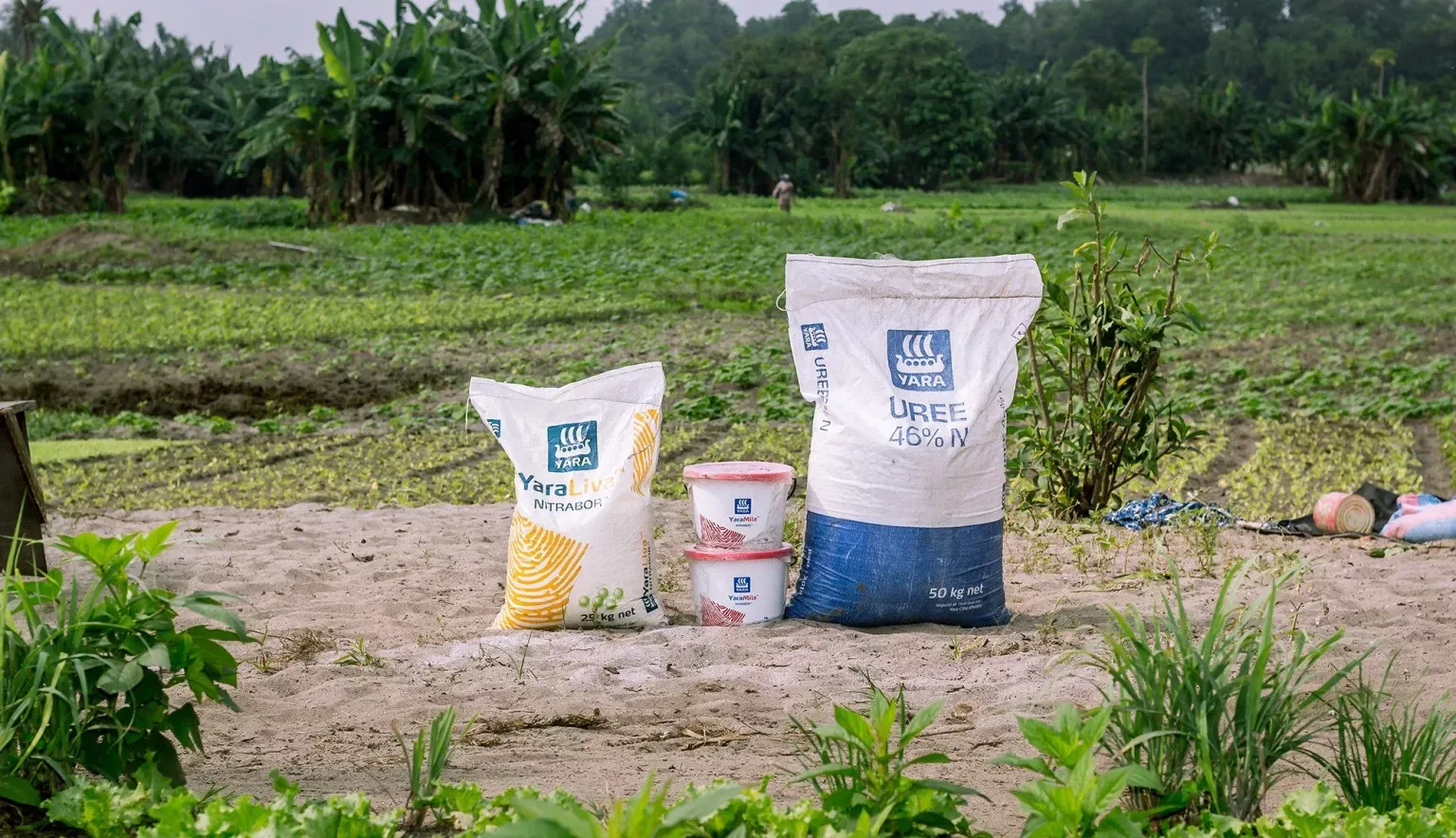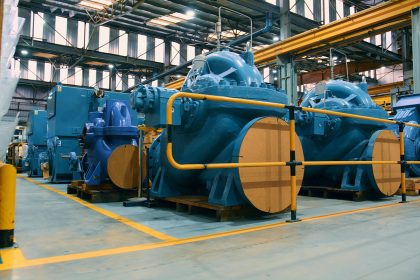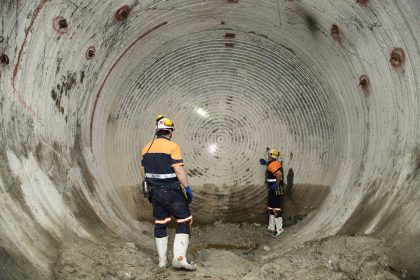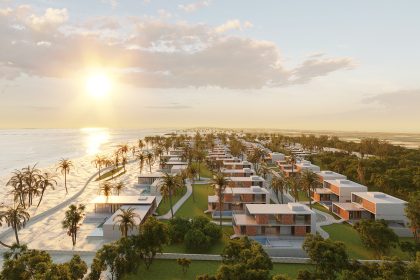Yara Côte d’Ivoire is working with local farmers to ensure sustainable growth, through high-quality fertiliser and agronomic education.
KEEPING IT GREEN
Historically, Côte d’Ivoire has been economically dependent on farming.
Back in 1960, agriculture accounted for 48 percent of the country’s GDP, predominantly thanks to its exports of cocoa. Fast forward to the present day and Côte d’Ivoire has also become one of the world’s biggest exporters of cashew nuts – palm oil, tropical fruits, cotton and rubber are also important agricultural exports.
However, according to World Bank, despite the country’s economic situation improving, since 2012 agriculture has contributed just 14 percent of GDP growth.
There are several reasons why Côte d’Ivoire’s agricultural sector has been constrained. Unpredictable weather patterns caused by climate change and deforestation have led to low crop yields in previous years. Another reason is that agriculture is mainly conducted on a small scale, and smallholders often lack access to products that can increase yields, such as fertilisers.
But Kanigui Yeo, General Manager of Yara Côte d’Ivoire, doesn’t just see problems – he also sees potential for growth and change.
“Agriculture is a challenging but exciting space to be working in,” he says. “When you look at all the agri value chain in Côte d’Ivoire you will see problems and opportunities as well. The infrastructure is poor, and more than 95 percent of farmers are smallholders with limited literacy, growing mainly cash crops for the direct export market.
“Most of them don’t apply the basic good agricultural practices and don’t have access to agricultural inputs. They are also excluded from the banking sector. This is a dark picture, but it means there are a lot of opportunities for companies with purpose.”
And Yara Côte d’Ivoire is one such company. It is a division of Yara International with a simple, but hugely important vision: to help feed the world, while protecting the planet.
Yara International itself is a company founded in 1905 with the aim of solving an emerging famine in Europe, with a unique reputation as the only global crop nutrition company in the industry. It has a worldwide presence of around 16,000 employees and operations in over 60 countries, reporting revenue of $12.9 billion in 2019.
30 YEARS IN THE IVORY COAST
Yara Côte d’Ivoire launched in 1990, and over the past few decades has been heavily involved in agricultural development in the country.
Its agronomists work with farmers to help them find the correct fertiliser solution for their needs. It offers premium fertilisers, including nitrophosphate compounds, liquid foliar calcium nitrates and micronutrients. It also works closely alongside research bodies to develop many of country’s current fertilisation protocols.
Based in the industrial area of Vridi in Abidjan, Yara Côte d’Ivoire employs around 50 staff, and has a network of more than 50 key distributors.
Since the 1990s, Yara Côte d’Ivoire has been collaborating with the CNRA (Centre National de Recherches Agronomiques), a government research unit which has added further credibility to its research and development. The CNRA has approved many of Yara’s fertilisation protocols for key crops, such as its NPK blend and Nitrabor for cocoa.
“When you add this collaboration to the huge agronomic knowledge of Yara globally, it makes us the place to go for specialities or best products in the market,” Yeo explains. “Strong global and local R&D, key partnerships and non-negotiable quality standards are the major enablers of our long-term collaboration with CNRA.”
Since his appointment as General Manager, Yeo has been focussing on improving team morale and rebuilding the company’s profitability. He also has the challenging task of having to balance capacity with local demand for Yara Côte d’Ivoire’s products.
“There is a critical need to increase capacity to match the level of the demand in recent years,” he says. “In 2018, Yara decided to downsize the activities in Côte d’Ivoire to focus on a smaller but more profitable business. This decision came with a reduction in the blending and storage capacity.
“But two years later, we are stuck with a high demand and a limited capacity during the first half of the year. It’s not a local decision and we’ve started discussions with the stakeholders – they are speaking with our parent company to make this happen.”
There are other ways in which belonging to a global company is beneficial to Yara Côte d’Ivoire.
For example, it works closely with Yara Switzerland to procure raw materials from the company’s network of global suppliers. Maintaining a good relationship with these suppliers is, according to Yeo, key to the company’s success.
“During the peak season, a shortage on a key raw material can lead to contract loss and penalties in the case of some tenders. It is therefore important for us to have a tight and collaborative relationship with our suppliers in respect with our code of business,” he explains.
Another way in which Yara Côte d’Ivoire can benefit from the wider organisation is through Yara’s position as a leader of digital farming devices.
Although Yeo acknowledges this position contrasts with what happens on the ground in countries like Côte d’Ivoire, several digital initiatives have been launched. A Facebook page enables it to share information about products and activities, and to reach out to farmers in remoter areas.
However, most exciting is a recently acquired smart scanner that improves the ease of conducting soil analyses.
“The smart scanner is very effective as it creates trust alongside providing data for the farmers and cooperatives regarding the fertility of their soil, the nutrient deficiency and the recommended needs,” Yeo adds.
GROWING SUSTAINABLY
Gaining the trust of farmers is an important step in Yara’s mission to help improve crop yields in Côte d’Ivoire, as it enables the company to transfer its 115 years’ worth of agronomic knowledge to them.
“In the communities, we work with lead farmers to train, coach and support to improve their agronomic skills, their practice and grow them to become ambassadors,” Yeo explains. “During this process we provide the fertilisers and the relevant trainings to ensure they increase their yields, income and standards of living.”
In other words, Yara is doing a lot more than simply selling fertiliser. It is also helping educate farmers in sustainable best practice. While it aims to expand its output, it wants to do so in an environmentally friendly manner.
“We are committed to sustainably feeding the populations where we operate, and we ensure that our operations comply with the standards of environment and climate protection,” the General Manager says.
The conversation, perhaps inevitably, moves onto the current COVID-19 crisis.
Yara, like millions of other companies across the world, is working hard to limit the virus’s impact, and it also wants to help mitigate the effects upon local communities.
“During this crisis of COVID-19, we have also been a key player to help the authorities and communities in the country with a donation in kind and in money to buy some personal protective equipment,” Yeo says.
Interestingly, the pandemic has given the General Manager an epiphany.
“At Yara we have the mission to responsibly feed the world and protect the planet,” he says. “At first I didn’t understand the extent to which this was true. But the consequences of the COVID-19 epidemic have made me realise that we have a very important role to play in local food security.”
Yeo quotes the statistics – 50 percent of rice consumed in the country is imported from Asia. Onions and tomatoes are imported from Europe, despite the fact they can be grown in the country. Sub Saharan Africa has the lowest yields per hectare in the world.
“To tackle these wicked problems, we will need to truly collaborate as an industry with the governments, NGOs, the banks with the purpose of building a self-sufficient food production industry in Côte d’Ivoire and in Africa,” he says.
“I believe that we have the human resources, the skills, the lands and the technologies to make it happen.”
With its background in crop nutrition, high quality products and sustainable values, Yara Côte d’Ivoire has every chance of succeeding in its mission.































